Faculty
-
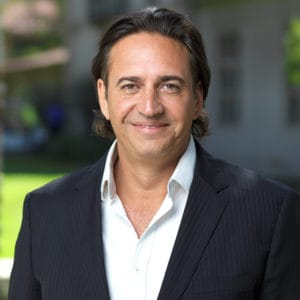
Mark Abdollahian
Full Clinical Professor
Research Interests
Strategic Decision Making, International Political Economy, Sustainable Development
-
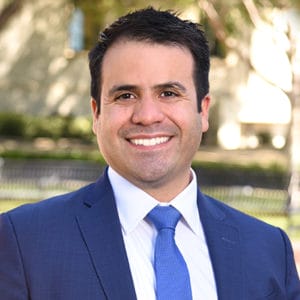
Carlos Algara
Mary Toepelt Nicolai and George S. Blair Assistant Professor
Research Interests
American politics, the United States Congress, ideological representation, electoral politics, elite institutions
-
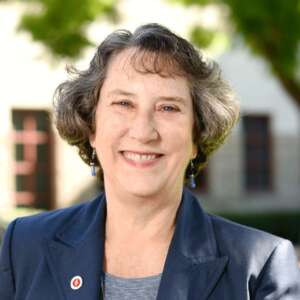
Heather E. Campbell
Thornton F. Bradshaw Professor of Public Policy
Director, Division of Politics & EconomicsResearch Interests
Public Policy, Urban Environmental Policy, Environmental Justice
-
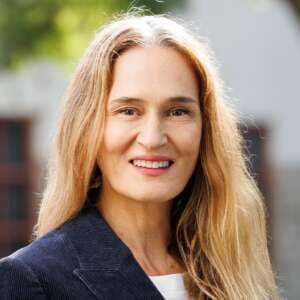
C. Mónica Capra
Professor of Economic Sciences
Research Interests
Experimental Economics, Behavioral Economics, Neuroeconomics
-

Joshua Tasoff
Associate Professor of Economic Sciences
Research Interests
Behavioral Economics, Experimental Economics, Animal Welfare Economics
-

Yi Feng
Luther Lee Jr. Memorial Chair Professor
Research Interests
International Political Economy, International Relations, Political Economy of China and Latin America, Quantitative Methodology
-
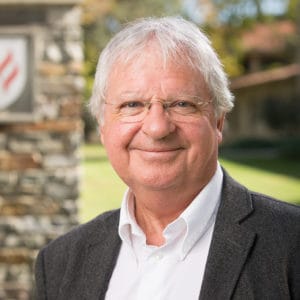
Graham Bird
Clinical Professor of Economic Sciences
Program Director: International Money and Finance; International Economics and Development Policy
Co-Director: Claremont Institute for Economic Policy Studies
Research Interests
International Finance, International Macroeconomics, Economic Development
-

Robert Klitgaard
University Professor
Research Interests
Public Policy, Economic Strategy, Institutional Reform, Corruption
-
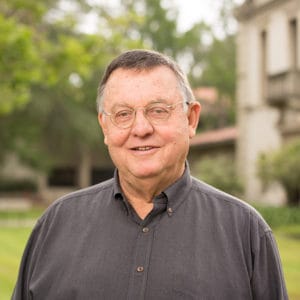
Jacek Kugler
Elisabeth Helm Rosecrans Professor of International Relations
Research Interests
Causes and Consequences of War, Political Performance, Power Transition
-

Tanu Kumar
Assistant Professor
Research Interests
Development, political behavior, urban politics, digital technology
-

Tyler Reny
Assistant Professor
Research Interests
American Politics, Racial and Ethnic Politics, Political Behavior, Public Opinion, Political Psychology, Data Visualization
-
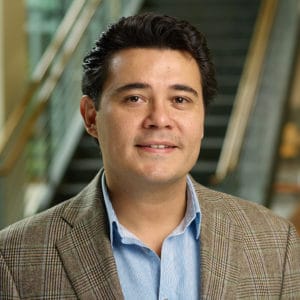
Javier Rodríguez
Associate Professor
Field Chair for PolicyResearch Interests
Public & Health Policy, Social Inequality, Quantitative Methods for Social Science Research
-
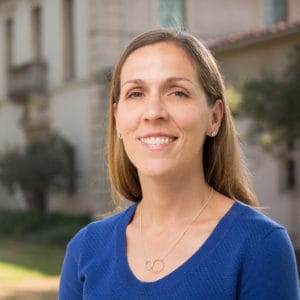
Melissa Rogers
Associate Professor, Politics & Policy
Co-Director, Inequality and Policy Research Center
Field Chair, Comparative Politics
Field Chair, American PoliticsResearch Interests
Comparative Politics, Political Economy, Economic Inequality
Curriculum
Core Courses (24 units)
Political Economy Required Courses:
- International Political Economy (4 units)
- Comparative Political Economy (4 units)
Microeconomics & Macroeconomics
Required Courses:
- Microeconomic Analysis (4 units) OR
- Consumer Theory and General Equilibrium (4 units)
- Modern Macroeconomics: Analysis, Policy and Applications
Two of the following, with approval of the field advisor.
- Game Theory and Asymmetric Information (4 units)
- Macroeconomics Analysis II (4 units)
- Computational Tools for Social Sciences (4 units)
Research Tools (16 units)
Choose one of the following four-course statistical sequences.
Track 1 (required for those whose primary department is Economics)
- Nature of Inquiry: Quantitative Research in Social Sciences (4 units)
- Math for Economists (4 units)
- Probability and Statistics for Econometrics (4 units)
- Econometrics I (4 units)
- Econometrics II (4 units)
Track 2 (open to those whose primary department is Politics & Policy)
- The Nature of Inquiry: Quantitative Research in Social Sciences (4 units)
- Introduction to Statistical Analysis (4 units)
- Multivariate Regression Analysis (4 units)
- Applied Data Analysis (various letters and topics) (4 units)
Field Options (40 units)
Political Science (20 units)
The Faculty of Political Science requires a minimum of five (5) courses to complete a field (20 units). Here is a list of concentrations available:
- American Politics
- Comparative Politics
- International Politics
- International Political Economy
- Public Policy
- Research Methodology
Economics (20 units)
- Applied Microeconomics: within this field are subfields to choose from:
- Crime & Law Economics
- Behavioral, Experimental, and Neurological Economics
- International Economic & Development Policy (see your advisor)
Resources
The Inequality and Policy Research Center (IPRC) is an initiative of the Institute for Democratic Renewal. IPRC supports the scientific analysis of political, health, socioeconomic, and group-specific inequality in the United States and abroad. We develop evidence-based policy and program solutions to problems related to inequality. For more information: https://research.cgu.edu/democratic-renewal/iprc/
The Institute for Democratic Renewal provides students hands-on engagement with and scholarly reflection upon the core issues facing the institutions and processes of democracy in the United States and abroad. Prominent, significant research projects have included Renewing Democracy Through Interracial/Multicultural Community Building. This project led to the production and publication of the Community Builder’s Tool Kit: A Primer for Revitalizing Democracy From the Ground Up (more than 70,000 copies in six languages are in use nationwide).
Application Guidelines
| University Requirements | |
|---|---|
| Application Fee | $80 (fee is non-refundable) |
| Official Transcripts | Undergraduate/graduate Applicants must submit a sealed, official transcript from every undergraduate and graduate institution that has granted the applicant a degree. Electronic transcripts sent to admissions@cgu.edu are also accepted. For undergraduate coursework, applicants are required to submit proof of a completed bachelor’s degree from a regionally accredited college or university. Unofficial copies of transcripts are accepted for review purposes, but official copies will be required upon admission. Applicants currently earning a degree that will be completed prior to attending CGU are required to submit a transcript showing work in progress for evaluation purposes. Once the degree has been granted, a final official transcript documenting the degree conferred must be submitted to CGU. International applicants are advised to review the International Transcript Guidelines for additional information on submitting international transcripts. |
| English Proficiency Exam | Required (international applicants only) A valid score on one of the following examinations TOEFL, IELTS, Pearson PTE, Duolingo English Test is required of all non-native English-speaking applicants. The examination is not required for the following applicants:
CGU’s school code for the TOEFL exam is 4053. International applicants are encouraged to visit our International Applicants page for more information, including score requirements. |
| Resume | Applicants must submit an up-to-date copy of their resume. |
| Program Requirements | |
|---|---|
| Statement of Purpose | Please submit a 2-3 page statement of purpose that details your academic and/or professional achievements, your specific areas of research interest within your desired field of study, why you are a strong candidate for graduate studies at CGU, and your career goals. |
| Letter of Recommendation | 2 letters required When filling out the online application, please enter references acquainted with your potential for success who will submit a written recommendation on your behalf. In most academic departments, references from faculty members who can speak to your academic ability are preferred; applicants with substantial work experience may request professional references. Please do not enter family members as references. You will be required to input information for your recommenders (whether they are submitting online or not) in the “Recommendations” section of the online application. Please follow the directions in this section carefully before clicking on “Recommendation Provider List” to input the names and contact information for each recommender. You will have an opportunity to indicate if the reference writer will be submitting online. These reference writers will receive an email from CGU with instructions on submitting an online recommendation. Recommenders who are indicated as offline will not receive an email from CGU with instructions to submit. These reference writers can submit via traditional mail and should use the supplemental New Student Recommendation Form. Recommenders can also email their letter of recommendation to the Office of Admissions at admissions@cgu.edu. |
Key Dates & Deadlines
CGU operates on a priority deadline cycle. Applicants are strongly encouraged to submit complete applications by the priority dates in order to assure maximum consideration for both admission and fellowships.
Once the priority deadlines have passed, the University will continue to review applications for qualified candidates on a competitive, space-available basis. The final deadlines listed are the last date the University can accept an application in order to allow sufficient time to complete the admissions, financial aid, and other enrollment processes.
Spring 2025
Priority Deadline – November 1, 2024
Final Deadline (International) – November 15, 2024
Final Deadline (Domestic) – December 1, 2024
Classes begin – January 21, 2025
Summer 2025
Priority Deadline – February 1, 2025
Final Deadline (International) – March 1, 2025
Final Deadline (Domestic) – April 1, 2025
Classes begin – May 19, 2025
Fall 2025
Priority Deadline – February 1, 2025
Final Deadline (International) – July 5, 2025
Final Deadline (Domestic) – August 1, 2025
Classes begin – August 25, 2025